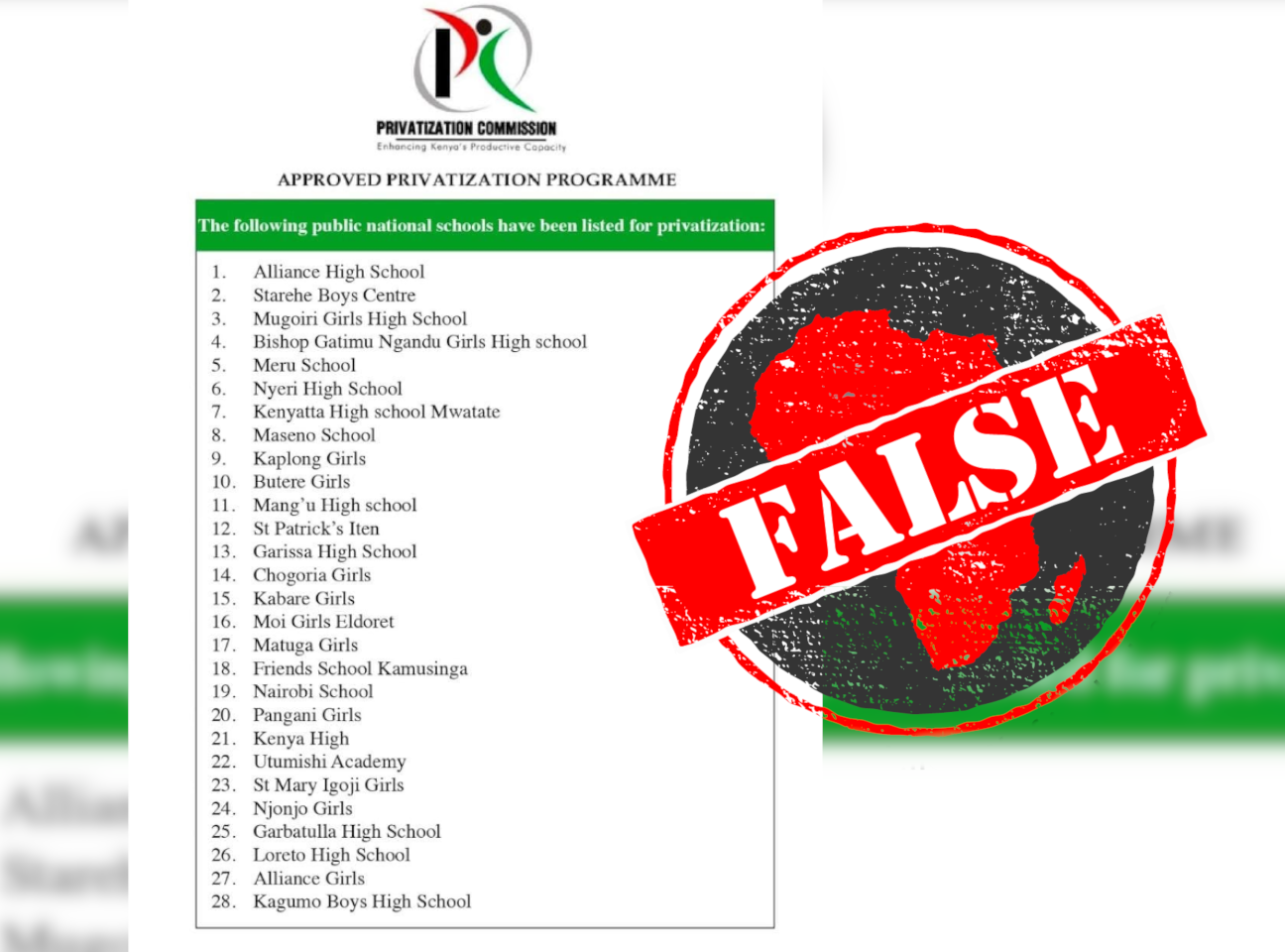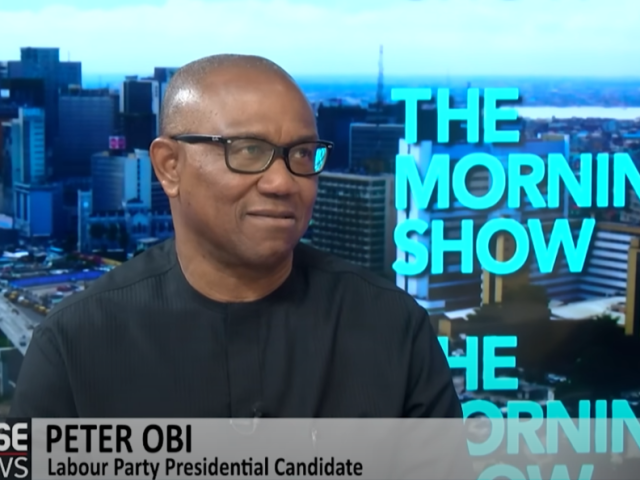IN SHORT: The document appears to be from Kenya’s Privatization Commission, which is charged with implementing the Privatization Act. But the commission has tweeted that the list is fake – these 28 top-performing public schools won’t go private.
A document circulating on Facebook and Twitter since January 2023 lists 28 Kenyan national public high schools that are supposedly to be sold to private companies.
“Approved privatization programme,” it begins. “The following public national schools have been listed for privatization.”
The 28 schools include Alliance High School, Starehe Boys Center, Kenya High School, Maseno School, Nairobi School and Moi Girls Eldoret.
Most, if not all, are among the country’s top-performing schools. Admission to these schools is highly sought.
The document is headed with the logo of Kenya’s Privatization Commission, a state agency set up in 2005 to implement the Privatization Act.
But has the commission really approved the privatisation of these 28 top schools?

No media reports on ‘approved privatisation’
If the document were legit, the privatisation of such high profile schools would have hit the headlines. But we found no media reports about it.
The commission posts updates on its website. We searched the site for the document and came up empty.
On 31 January the commission posted the document on its official Twitter account – stamped “FAKE”.
Kenya’s education ministry has also flagged the document as fake.
Republish our content for free
For publishers: what to do if your post is rated false
A fact-checker has rated your Facebook or Instagram post as “false”, “altered”, “partly false” or “missing context”. This could have serious consequences. What do you do?
Click on our guide for the steps you should follow.
Publishers guideAfrica Check teams up with Facebook
Africa Check is a partner in Meta's third-party fact-checking programme to help stop the spread of false information on social media.
The content we rate as “false” will be downgraded on Facebook and Instagram. This means fewer people will see it.
You can also help identify false information on Facebook. This guide explains how.



Add new comment